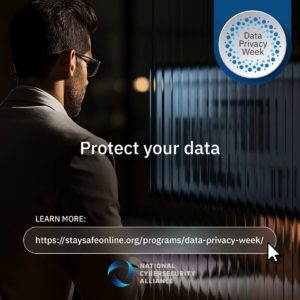My Cart - 0 items
- No product in the cart.
In today’s world, protecting our personal data is more crucial than ever. One of the key aspects of data protection is password security. Weak passwords are a leading cause of data breaches and unauthorized access to accounts. Therefore, it is essential to create strong and secure passwords to ensure the safety of our personal information.
Password Length: It is recommended to make your password at least 12 characters long. Longer passwords provide increased protection against brute force attacks, where hackers try numerous combinations to crack the password.
Mix of Characters: Use a combination of upper and lower-case letters, numbers, and symbols. This diverse combination makes the password more complex and harder to guess.
Avoid Personal Information: Refrain from using personal information such as names, birthdays, or pet names in passwords. Hackers can easily guess this information, especially with the prevalence of social media.
Unrelated Words: Combine unrelated words that are not easily guessable. This technique creates a strong password that is not found in the dictionary, making it more difficult for hackers to crack.
In addition to creating strong passwords, there are other measures you can take to enhance password security:
Password Manager: Consider using a password manager to securely store and manage your passwords. These tools generate and remember strong passwords for you, reducing the risk of using weak or easily guessable passwords.
Unique Passwords: Use a unique password for each account. Using the same password across multiple accounts increases the risk of multiple accounts being compromised if one password is breached.
Regularly Change Passwords: Change your passwords periodically to ensure security. By regularly updating passwords, even if one is compromised, the potential damage is limited

In today’s digital landscape, protecting our privacy online is paramount. Safeguarding our personal information and preventing unauthorized access should be a top priority. To help you maximize your privacy, here are some essential tips to consider:
Protect Identity Data: Your personal and identity information should be treated with utmost care. Safeguarding this data is crucial to prevent identity theft and unauthorized access to sensitive information. Be diligent in keeping your personal details secure and avoid sharing them indiscriminately.
Privacy Settings: Take advantage of the privacy settings offered by social media platforms, web browsers, and other online services. These settings allow you to control the amount of personal information that is publicly accessible. By maximizing these privacy controls, you can limit the exposure of your data to potential threats.
Exercise Caution with Social Media: It’s important to be mindful of oversharing on social media platforms. Avoid revealing excessive personal information that can make it easier for hackers to target or gain unauthorized access to your accounts. Remember, what you share online can have long-lasting consequences, so always exercise caution.
Install Security Apps: Consider installing reliable security apps on all your devices. These apps provide additional layers of security, such as malware protection, secure browsing, and privacy features. By utilizing these tools, you can enhance the security and privacy of your online activities.
Beware of Password-Capturing Malware: Protect your computer from password-capturing malware. Malicious software can capture keystrokes and other sensitive information, including passwords, compromising your privacy and security. Ensure that you have robust antivirus and anti-malware software installed and regularly update them to stay protected.
By implementing these privacy measures, you can take proactive steps to safeguard your personal information and maintain control over your online privacy. Remember, privacy is a fundamental right, and it’s up to each of us to actively protect it in today’s digital world. Stay vigilant, stay informed, and stay secure!
Don’t forget to “take control of your data.”
